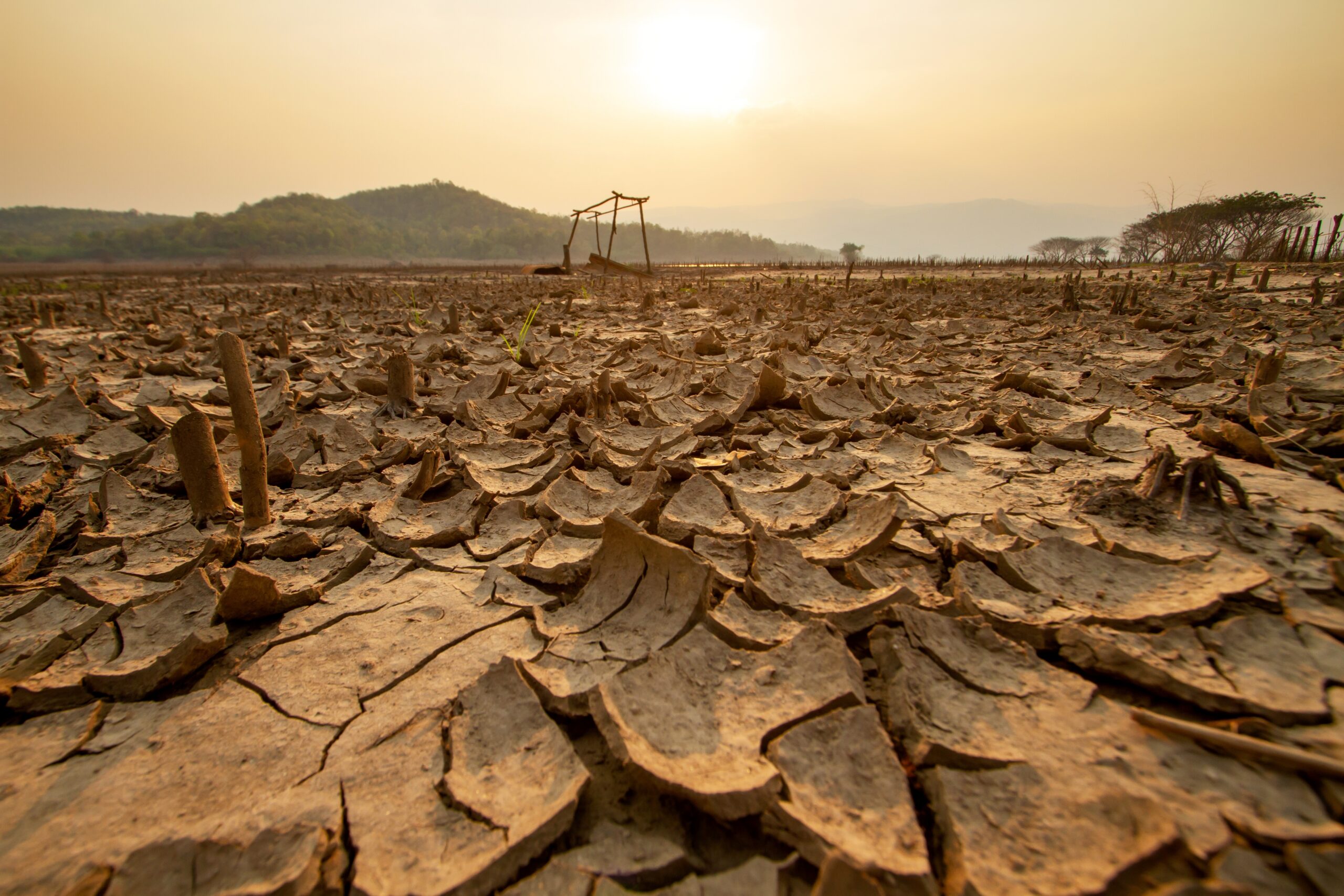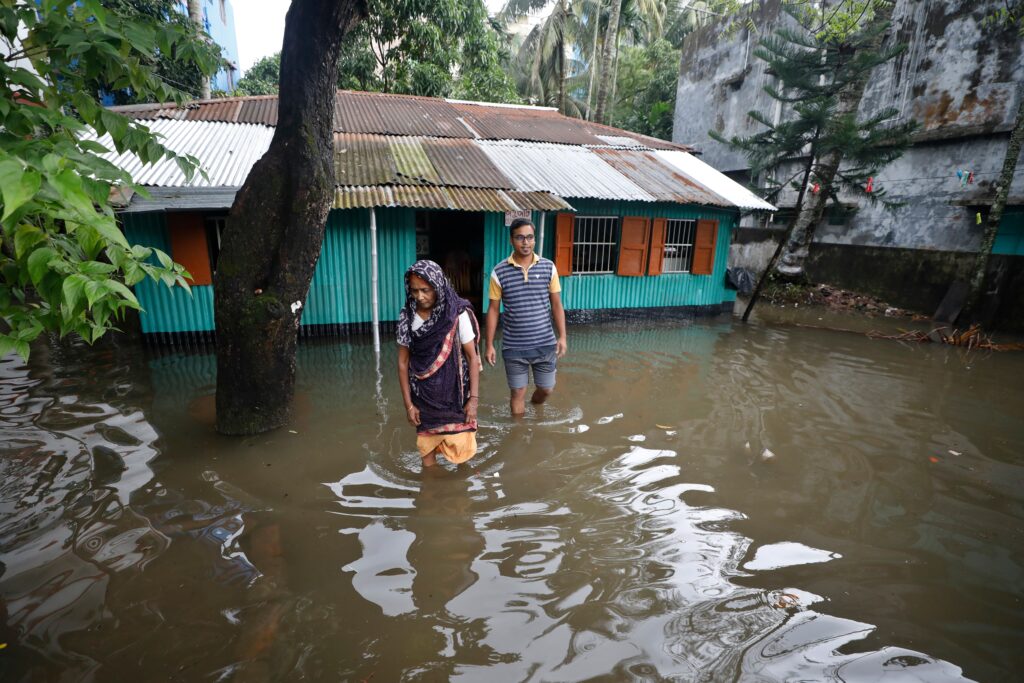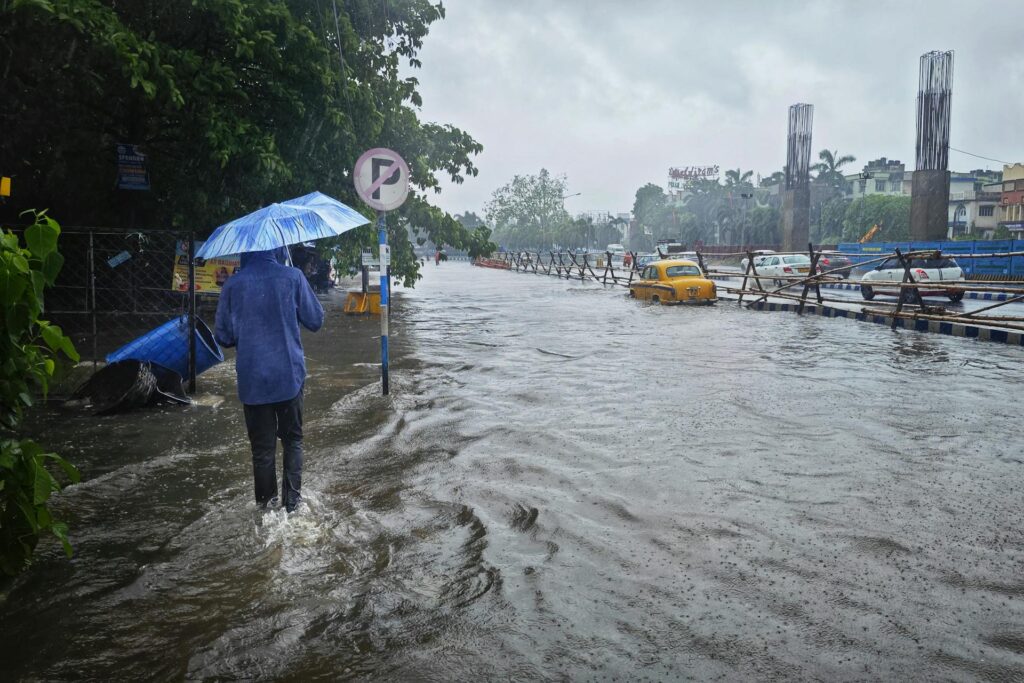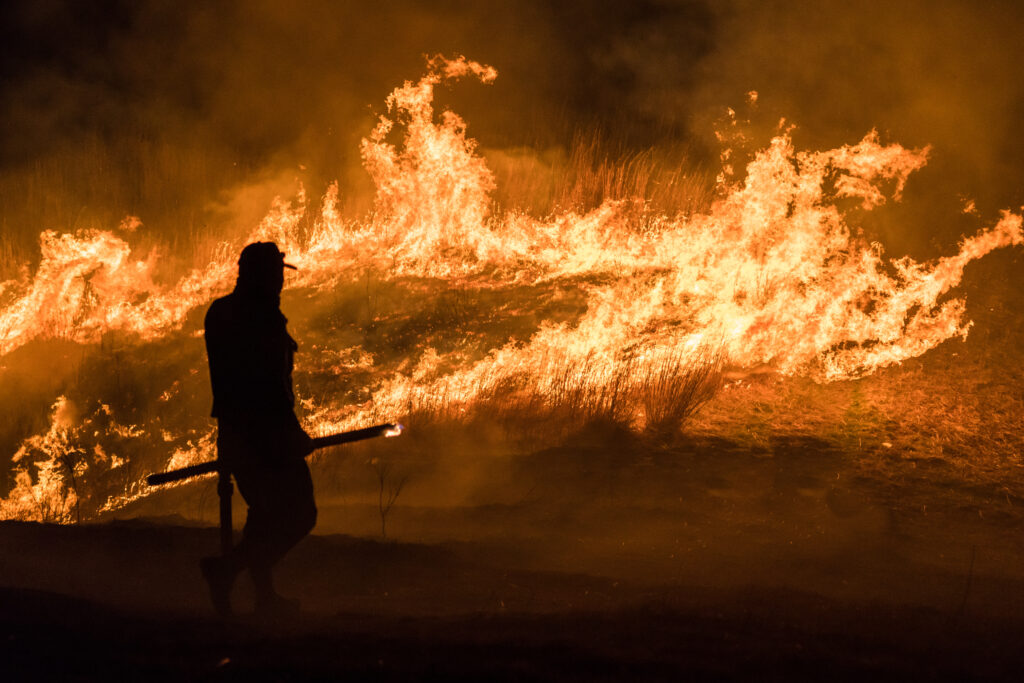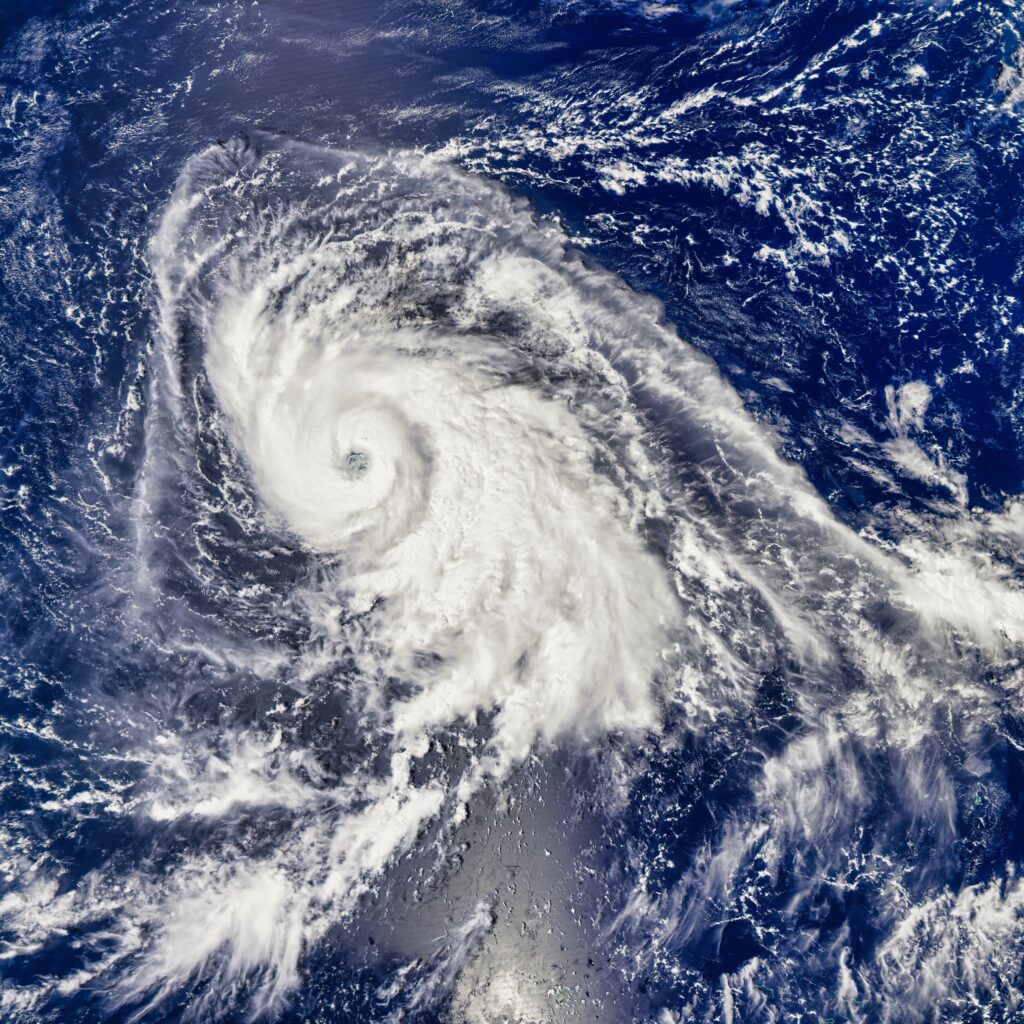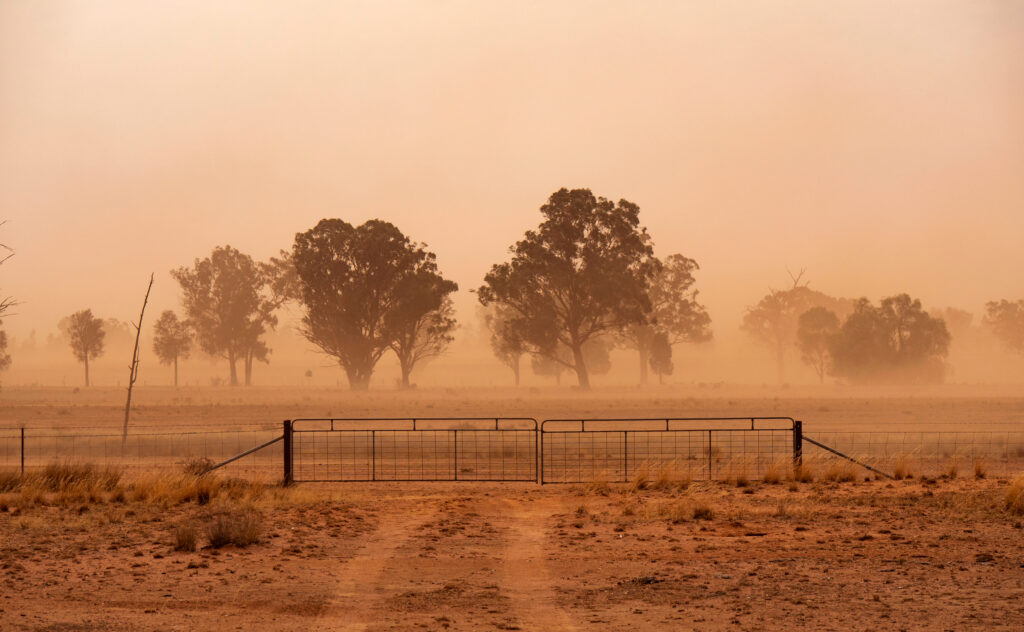Climate change in 2025 is already shaping up to be a defining issue, as 2024 marked an alarming milestone: the warmest year ever recorded. According to the World Meteorological Organization’s (WMO) State of the Global Climate 2024 report, global temperatures soared to an average of 1.55°C above the pre-industrial baseline (1850–1900). This record-breaking heat underscored the growing impacts of human-induced climate change, driven by greenhouse gas emissions and intensified by a strong El Niño event. A single year exceeding 1.5°C does not mean the Paris Agreement’s targets are out of reach, but it was a stark wake-up call.
Dr. Davide Faranda from ClimaMeter reinforced this urgency: “The fact that 2024 has surpassed 2023 as the hottest year on record shows that climate change impacts are increasing. Rising global temperatures are fuelling more extreme weather events — stronger storms, longer heatwaves and intensified droughts. Every fraction of a degree matters, and we are already seeing the devastating consequences of our delayed action in stopping fossil fuel use. Cutting emissions is not just necessary; it is urgent. The choices we make today will determine the severity of climate impacts in the coming years.”
2024: A Year of Unprecedented Extreme Weather Events
The soaring global temperatures in 2024 were accompanied by a series of extreme weather disasters that reshaped landscapes and devastated communities. Typhoon Yagi wreaked havoc across Vietnam, the Philippines and southern China, while Hurricanes Helene and Milton struck Florida, causing economic losses in the tens of billions and claiming over 200 lives in the US — the deadliest mainland hurricane event since Katrina in 2005. Meanwhile, Tropical Cyclone Chido brought destruction to Mayotte, Mozambique and Malawi, displacing 100,000 people in Mozambique alone.
A brutal heatwave in Saudi Arabia saw temperatures near Mecca surge to 50°C, leading to mass casualties during the Hajj pilgrimage. Elsewhere, Chile experienced deadly wildfires, with over 300 deaths in Viña del Mar, while Canada’s wildfire season recorded the second-highest carbon emissions on record.
Record floods displaced millions across the Sahel and West Africa, while prolonged droughts in southern Africa, Mexico and South America ravaged agriculture and hydropower production. Brazil’s Rio Grande do Sul suffered extreme flooding, submerging large areas of Porto Alegre and resulting in over 200 deaths.
Glaciers continued their alarming retreat, with the period between 2022 and 2024 marking the most negative three-year mass balance on record. Global sea levels reached their highest since satellite measurements began, now rising at a rate more than double that of the 1993–2002 period.
Dr. Kathryn Smith of The Marine Biological Association of the UK warned of worsening consequences: “For as long as we continue to burn fossil fuels, global temperatures will continue to rise. If our oceans keep heating up, we will see even greater impacts. We are already seeing species relocating, widespread coral bleaching and fisheries closures, and these consequences are only likely to get worse. Rising temperatures don’t just harm ecosystems, they also affect people, as essential resources disappear, leading to massive societal and economic impacts.”
Climate Change in 2025: What to Expect?
Climate change in 2025 is likely to bring continued climate extremes, even if El Niño conditions weaken. The lingering heat from record ocean warming and greenhouse gas emissions suggests further temperature rise is inevitable.
While El Niño contributed to the 2024 record, the underlying warming trend means 2025 could still be dangerously warm, especially if emissions continue climbing. Stronger and more frequent storms are expected, with ocean temperatures at their highest levels increasing the likelihood of more intense hurricanes and typhoons, posing risks to coastal populations. Rising sea levels and flooding will continue to threaten coastal cities as ice sheets keep melting. The growing climate refugee crisis is expected to worsen as extreme weather forces displacement, intensifying humanitarian crises in vulnerable regions.
A Call for Urgent Action
The State of the Global Climate 2024 report makes it clear: the climate crisis is accelerating, and without intervention, the consequences will intensify. Despite some progress, only half of the world’s countries have adequate early warning systems. This must change.
Governments and industries must commit to drastic emissions cuts, rapidly reducing fossil fuel use and adopting clean energy solutions. Investment in early warning systems is critical, as strengthening meteorological and hydrological services can save lives and reduce economic losses. Adaptation and resilience-building measures, such as coastal defences, drought-resistant agriculture and infrastructure reinforcements, must be prioritized. Global cooperation is essential, ensuring that nations collaborate on policies that promote long-term sustainability and climate justice for vulnerable communities.
The record heat of 2024 is not just a statistic; it is a warning. The choices made today will determine whether climate change in 2025 follows the same devastating trajectory or if the world finally takes meaningful action.
Sara Siddeeq
Sara Siddeeq is a climate and energy writer with bylines in New Energy World, Climate News Australia, and Batteries and Energy Storage Technology (BEST) Magazine. She specialises in covering clean energy, carbon markets, and climate resilience, bringing clarity to complex topics. Sara holds a qualification in Communicating Climate Change for Effective Climate Action and is passionate about data-driven climate storytelling.
Sara Siddeeq is a climate and energy writer with bylines in New Energy World, Climate News Australia, and Batteries and Energy Storage Technology (BEST) Magazine. She specialises in covering clean energy, carbon markets, and climate resilience, bringing clarity to complex topics. Sara holds a qualification in Communicating Climate Change for Effective Climate Action and is passionate about data-driven climate storytelling.

